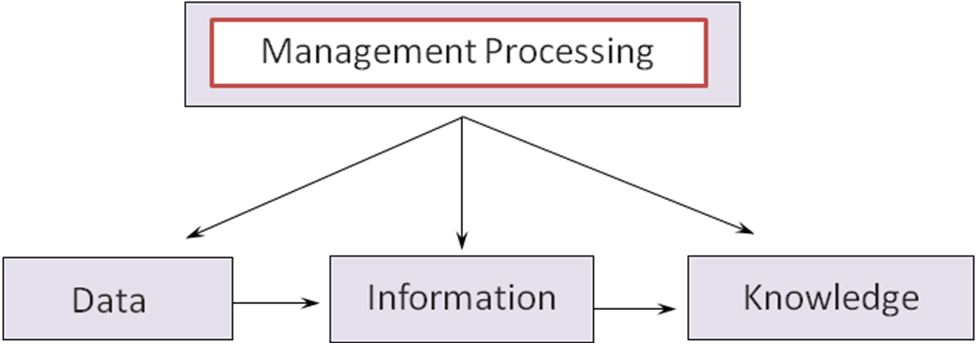Undergraduate Course
Nurs460 – Health Informatics for Registered Nurses
Module 1: Informatics- History, Theory, Concepts and Competencies
Informatics Theory and Concepts
Learning Activity
Read Graves, J. R. & Corcoran, S. (1989). The study of nursing informatics. Image: Journal of Nursing Scholarship, 227-231. Although this is a very old article it sets the stage for the development of informatics theory and concepts and is still used in nursing today as a way of understanding how we manage information.
Graves & Corcoran (1989) developed a model for organizing the study of Nursing Informatics. In this framework the core of informatics science focuses on the commodities that computers process, not the computer itself. These commodities are known as data, information, and knowledge.

- Data are discrete, uninterpreted entities
- Information is interpreted, organized, and structured data
- Knowledge is information synthesized in such a way that it is possible to see relationships, formulate opinions, and make predictions
Definitions:
Later these concepts were expanded to include the term “wisdom”. Below are additional definitions and examples to help you understand and apply these concepts.
- Data: “Uninterpreted elements such as a person’s name, weight, or age. Because they are uninterpreted, they do not have meaning.” (Nelson & Staggers, 2014)
- Information: “Collection of data that have been interpreted and examined for patterns and structure.” (Hebda & Czar, 2013). For example: Interpretation of a series of blood pressure readings or temperatures over time by comparing with normal values.
- Knowledge: Created when data and information are identified, synthesized and formalized into an idea or concept (Hebda & Czar, 2013; Nelson & Staggers, 2014). For example: Utilizing acquired knowledge (through education), personal experience, theory, reasoning, and research to come to a conclusion about the data and information collected. For example: Exploring a better method to prevent skin breakdown to improve practice using the above techniques. Clinical decision support systems support the transition from information to knowledge.
- Wisdom: The appropriate use of knowledge to solve real-world problems that will aid continuous improvement (Alexander e. al, 2014; Nelson & Staggers, 2014). This requires the analysis of large scale data and information along with cumulative experience and skill to know how to appropriately manage and solve problems. Expert systems support the transition from knowledge to information.
This website is maintained by the University of Maryland School of Nursing (UMSON) Office of Learning Technologies. The UMSON logo and all other contents of this website are the sole property of UMSON and may not be used for any purpose without prior written consent. Links to other websites do not constitute or imply an endorsement of those sites, their content, or their products and services. Please send comments, corrections, and link improvements to nrsonline@umaryland.edu.